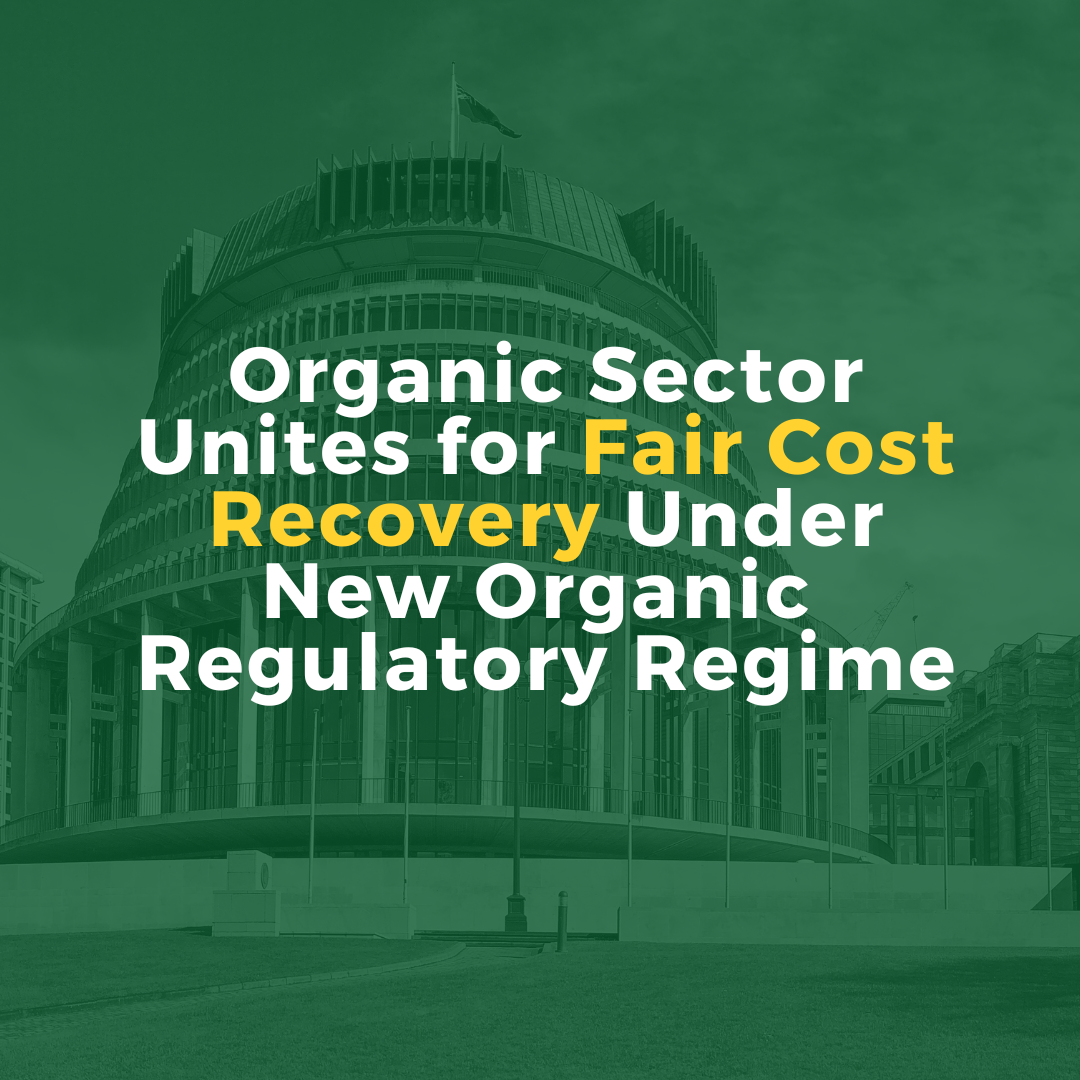As the year draws to a close, we want to pause and say thank you to everyone who has walked alongside OANZ in what has been an extraordinary year for the organic sector.
Read MoreCatch up on all the latest organic news from home and abroad with Organic Aotearoa's monthly newsletter, The BUZZ - November 2025 edition. Covering news, events, and so much more.
Read MoreOANZ has helped shape key changes to New Zealand’s National Organic Regulation, including a fairer cost recovery model. The first tranche of Organic Notices is now open for public consultation until 5 December. Review the proposals, join MPI’s sector-specific webinars, and make your voice heard.
Read MoreOrganic Aotearoa New Zealand (OANZ) is welcoming today’s announcement from New Zealand Food Safety (NZFS) that glyphosate residue limits in wheat, barley and oats will remain at 0.1 mg/kg, with new restrictions on how glyphosate can be used in crop production, specifically banning pre-harvest use on grains for human consumption.
Read MoreOrganic Aotearoa New Zealand (OANZ) welcomes New Zealand First’s strong stance against the Gene Technology Bill, commending the party for protecting New Zealand’s environment, public health, and global reputation as a GE-free nation.
Read MoreCatch up on all the latest organic news from home and abroad with Organic Aotearoa's monthly newsletter, The BUZZ - October 2025 edition. Covering news, events and so much more.
Read MoreEarlier this year, New Zealand Food Safety (NZFS), a business unit of the Ministry for Primary Industries (MPI), proposed changes to the Maximum Residue Levels (MRLs) for several agricultural compounds, including the controversial herbicide glyphosate.
Read MoreAfter months of waiting, the Health Select Committee has released its report on the Gene Technology Bill, recommending that the Bill be passed. However, this recommendation is not final.
Read MoreA new report from GE-FREE NZ on genetically engineered (GE) animals in New Zealand has laid bare a confronting truth: after more than two decades of research, the results have been almost entirely failures, for science, for animal welfare, and for our national values.
Read MoreIt’s been a landmark year for OANZ. Our 2024/25 Impact Report captures the progress, achievements, and challenges of the past year, highlighting how our work is driving systemic change in Aotearoa New Zealand’s food and farming sector.
Read MoreThe long-awaited regulations under the Organic Products and Production Act 2023 have now been released. This is a significant milestone for the organic sector in Aotearoa, following years of advocacy and consultation.
Read MoreThe SFFF project has explored how to future-proof organics in Aotearoa New Zealand through the design of a unified structure that is resilient, credible, and self-funded. Learn More about the state of play of organics in NZ and where to from here….
Read MoreIt’s AGM time. Join us online on 30 September to review achievements, look ahead and elect Board members. Your attendance and votes are vital.
Read MoreThe Health Select Committee has again delayed the release of its report on the controversial Gene Technology Bill, this time pushing the deadline out to 10 October 2025. Organics Aotearoa New Zealand (OANZ) says the further delay underscores the complexity of the issues and the need for strong leadership and careful consideration before any decisions are made.
Read MoreCatch up on all the latest organic news from home and abroad with Organic Aotearoa's monthly newsletter, The BUZZ - August 2025 edition. Covering news, events, and so much more.
Read MoreMPI’s current cost recovery proposal risks undermining the very businesses it seeks to support. OANZ’s recent submission, calls for a fair, revenue-based tiered levy that protects small operators, avoids duplication, and aligns with international best practice.
Read MoreOver the last month, OANZ has been hard at work representing the organic sector’s position on genetic engineering. We remain committed to upholding the global organic stance against GMOs in food and the environment here in Aotearoa New Zealand.
Read MoreNear Kimbolton in the Manawatū, Darryl and Debbie Coleman are proving that organic principles and smart technology can go hand in hand to create a resilient, profitable, and future-focused farming system.
After more than 30 years of conventional dairy farming, the couple transitioned their 245-hectare, 500-cow operation to certified organic, completing the three-year conversion process in January 2023.
Read MoreNew research published in June 2025 (Panzacchi et al.) presents conclusive evidence of a strong causal link between glyphosate exposure and cancer. This groundbreaking paper, co-authored by leading environmental health experts, states that the “safe” level set by the European Food Safety Authority (EFSA) is in fact not safe at all.
Read MoreThe Health Select Committee has extended the reporting deadline for the Gene Technology Bill to 22 August. OANZ sees this as a vital opportunity for deeper scrutiny and continues to push for legislation that protects the right to farm GE-free, ensures consumer choice through transparent labelling, and upholds New Zealand’s global food reputation.
Read More
















